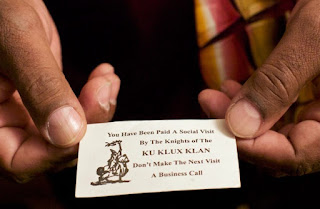Rallies & demonstrations
I’ve been going on demonstrations for the last half a year or so, designing placards, standing and marching with other protestors, listening to speeches, chanting with the crowd in between speeches.
How effective is it? Well, the idea is to get publicity and so send a message out that this number of people at least disagrees with the status quo. In so far as a sizeable mass movement is built, and the feelings of these people are reported by the press / media, the aim is achieved.
Lobbying authorities
Another form of political / civil activism is to lobby / work with local politicians, getting them to represent you, and get policies or laws passed or amended or blocked. This is maybe a more effective kind of activism, as it changes the behaviour of governments and courts that can have huge impact on significant aspects of many people’s lives, e.g. where they can live, what kind of job security they have, what safety nets are in place for them if they get sick or too old to look after themselves, who they can marry and so on.
Door-knocking / phoning individuals & longer-term relationships
A third form of activism is more personal and long-term, and seeks to engage with individuals and change the way they think and feel. This is a hugely important form of activism: without changing how people think and feel, how can you grow support enough to build a mass movement? And without a mass movement, how do you put pressure on officials to change policies and laws?
Canvassing on the door-step or by phone, e.g. for a political party, goes some way towards this. Remarkable success seems to be achievable by taking things a lot further, developing long-term friendly relationships with the people whose minds you want to change.
Daryl Davis
As regards building long-term relationships, the work of Daryl Davis is of great interest. He is consumed by the realisation that some white people hate him, just for being black. The question he has is: “How can people hate me when they don’t even know me?” He finds that when extreme racists do get to know him, and they become friends, they stop hating him, and when extreme racists get to know other black people and Jewish people and so on, they stop hating them. Discrimination stems from ignorance of the Other; knowledge of the Other destroys discrimination. But it takes time and persistence and patience and positivity and finesse.
If you are interested to learn more of Daryl Davis’s work, I recommend starting with the Love + Radio podcast episodes How to Argue:
Love + Radio: How to Argue
Love + Radio – The Silver Dollar
"In Part I, we return to an old episode: The Silver Dollar, featuring Daryl Davis, a black musician who has made it his life’s work to befriend white racists."
Love + Radio – How to Argue
"In Part II, we pay Daryl a visit to see what he can tell us about how to successfully argue — or even just have a civil, critical conversation — with someone who holds opinions very different from your own. Think of it as a field guide to arguing."
If you prefer a quick read, there’s a good article about Daryl Davis too:
How One Black Blues Musician Changed 25 Members of the KKK
10-22-2016 Caitlin Burke
"Since age 10, when first confronted with the realities of racism, Davis pondered one question: How can you hate me when you don't know me?"
He’s got a website, a book, and he is the subject of a new documentary film, Accidental Courtesy, available online. I haven't read the book or seen the documentary yet.

No comments:
Post a Comment